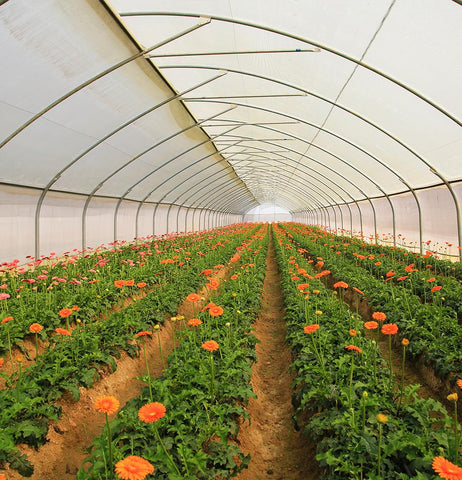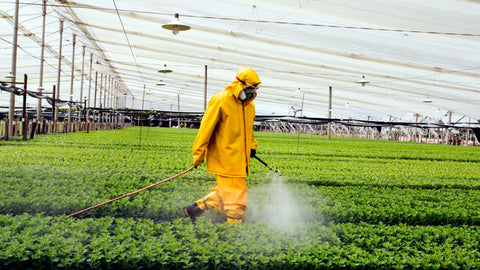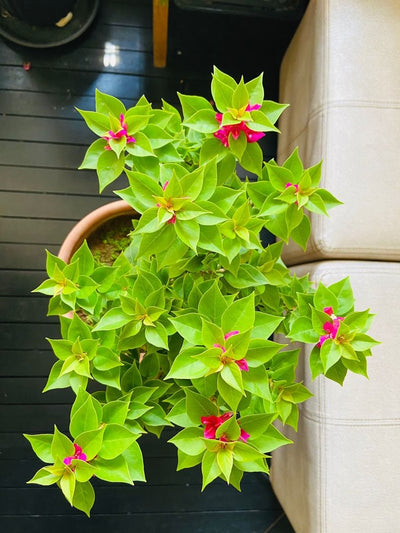Pest and Disease Control in Polyhouses: The Role of Neem Oil
Micro polyhouse gardens offer an excellent way to practice urban farming, allowing you to grow fresh produce even in limited spaces. In these gardens, proper watering techniques are crucial for successful plant growth. In this comprehensive guide, we'll explore various watering methods, the concept of Sadabahar vertical gardens, and recommend suitable urban plants to optimize your micro polyhouse garden. Whether you're new to gardening or an experienced urban farmer, mastering efficient watering practices is essential for ensuring healthy plants and maximizing your harvests. In polyhouses, pests and diseases can be a problem. But don't worry! Here are some ways to control Pest and Disease:
 Integrated Pest Management (IPM): Use different methods to control pests, like checking plants regularly, using natural predators, and rotating crops.
Integrated Pest Management (IPM): Use different methods to control pests, like checking plants regularly, using natural predators, and rotating crops.- Keep It Clean: Keep your polyhouse clean, remove dead plants quickly, and sanitize tools to prevent disease spread.
- Quarantine: Before adding new plants, isolate them to make sure they're pest-free.
- Natural Control: Use good bugs to eat bad bugs! Beneficial insects can help control pests without chemicals.
- Rotate Crops: Change where you plant things each year to avoid pests building up.
- Water and Feed: Give your plants the right amount of water and nutrients to help them stay strong.
- Choose Resistant Plants: Pick plant varieties that naturally resist pests and diseases in your area.
Here's how neem oil can play a role in maintaining a healthy polyhouse garden:
- Natural Insect Repellent: Neem oil acts as a natural insect repellent, keeping away pests like aphids, mites, white flies, and caterpillars. When sprayed on plants, it creates a protective barrier, preventing pests from feeding and laying eggs.
- Anti-Fungal Properties: Neem oil contains compounds that combat fungal diseases such as powdery mildew, black spot, and rust. Regular application of neem oil can help prevent and control fungal infections.
- Disrupting Pest Life Cycle: Neem oil disrupts the life cycle of certain pests, inhibiting their growth and reproduction. This disruption can help reduce pest populations over time.
- Safe for Beneficial Insects: Unlike chemical pesticides, neem oil is less harmful to beneficial insects like bees and ladybugs, ensuring a balanced ecosystem in your polyhouse.
- Environmentally Friendly: Neem oil is biodegradable and poses minimal risk to the environment when used responsibly.
- Easy Application: Neem oil is easy to apply, and it can be sprayed directly on the plants or used as a soil drench to protect roots.
To use neem oil effectively for pest and disease control in your polyhouse, follow these steps:
 Dilute neem oil according to the instructions on the product label.
Dilute neem oil according to the instructions on the product label.- Test a small portion of your plant first to ensure there are no adverse reactions.
- Apply the diluted neem oil evenly on all parts of the plant, including the undersides of leaves, where pests often hide.
- Repeat the application every 7–14 days or as needed, especially during periods of high pest activity or disease prevalence.
To get to know more, contact us through contact@urbanplants.co.in
Or get in touch through WhatsApp Click Here




Leave a comment